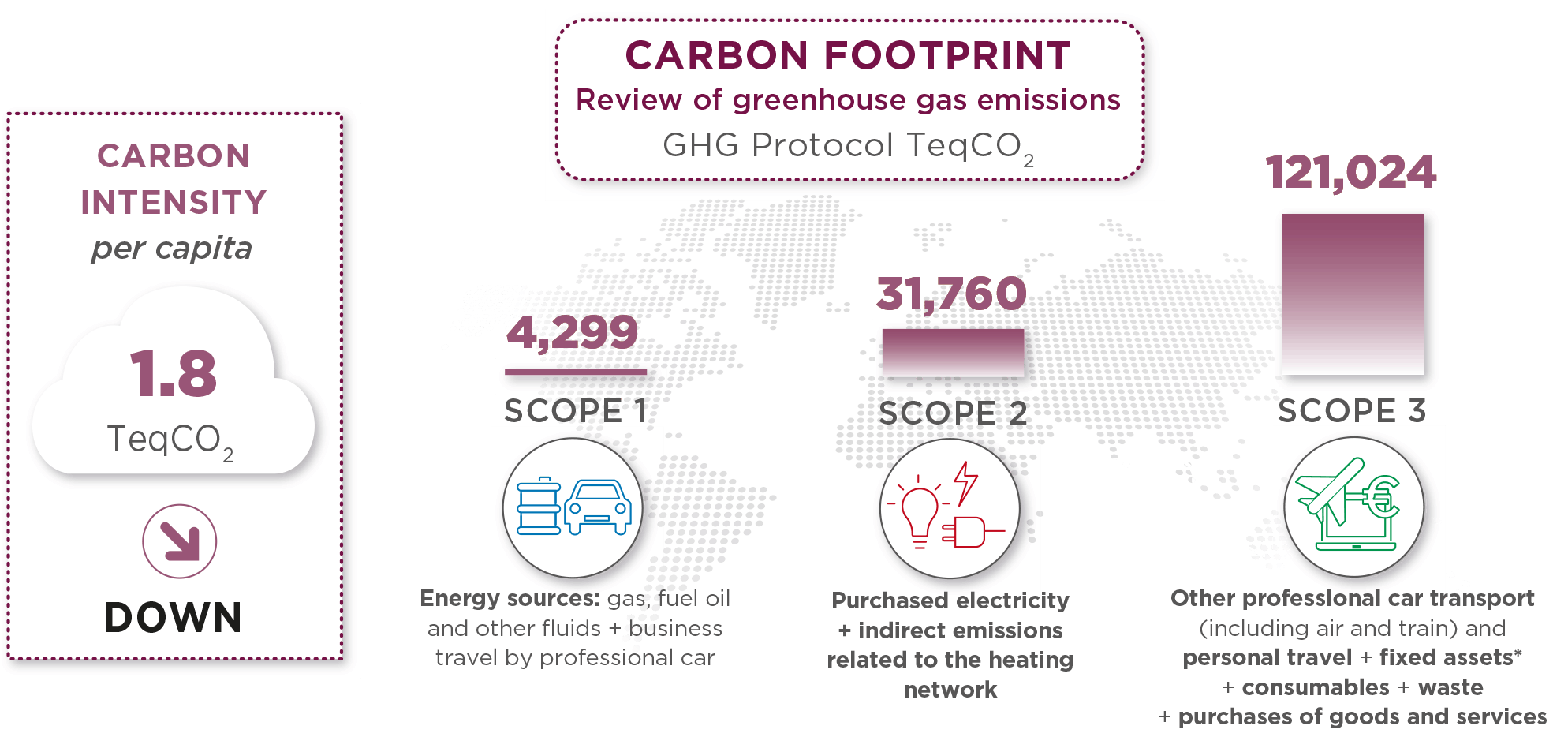Protection of biodiversity
The protection of biodiversity is approached locally, depending on the immediate environment of each agency and its actual capacity for influence and action. In France, the Groupe continued to install several beehives on the roofs of three of its buildings in Paris, including the Champs-Élysées, Bastille and Gambetta. Employees are trained each year to support the care of the beehives. In addition to supporting the French bee-keeping sector, a partnership has been entered into with the Apiflordev association which fights against poverty in Africa. The whole sale of honey from Paris beehives is now financing the installation of beehives in Senegal, which are crucial for local biodiversity as well as from a social perspective. In Costa Rica, Re:Sources is a model of the volunteer approach with an action plan involving employees in a carbon offsetting program designed to promote local biodiversity by preserving tropical flora and fauna in protected forests.
Pro bono campaigns and volunteering focused on protecting nature and the planet were carried out for associations that protect the environment and natural resources (namely flora and fauna) in many countries.
4.3.5 Review of greenhouse gas (GHG) emissions
For the 13th edition, the greenhouse gas (GHG) emissions review based on the GHG protocol method was calculated with the assistance of Bureau Veritas based on data collected by all Groupe entities, i.e., 99% of headcount (maximum margin of error of 20%).
2021 data take into account new emission factors updated from the Base Carbone® database managed by the French Environment & Energy Management Agency (ADEME, accessible at www.basecarbone.fr); these emission factors are required by the French Ministry for the Ecological and Inclusive Transition for the GHG emissions assessment.
The total of scopes 1 +2 +3 in 2021 was 157,083 TeqCO2, i.e. a carbon intensity of 1.8 TeqCO2 per capita.

CARBON FOOTPRINT
Review of greenhouse gas emissions
GHG Protocol TeqCO2
CARBON INTENSITY per capita : 1.8 TeqCO2
DOWN
SCOPE 1
Energy sources: gas, fuel oil and other fluids + business
travel by professional car : 4,299
SCOPE 2
Purchased electricity + indirect emissions
related to the heating network : 31,760
SCOPE 3
Other professional car transport (including air and train) and
personal travel + fixed assets* + consumables + waste
+ purchases of goods and services : 121,024
* buildings, IT and office equipment
